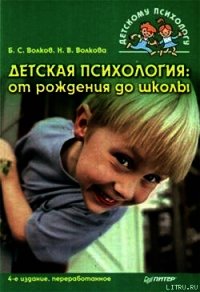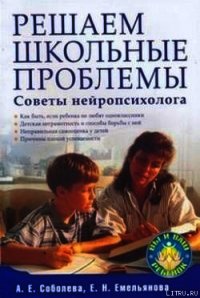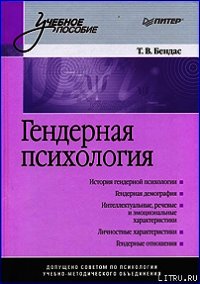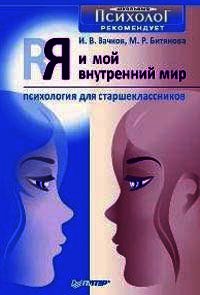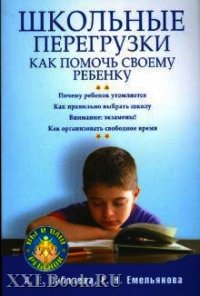Галерея российских царей - Латыпова И. Н. (читать книги полностью .TXT) 📗
Once more, the Russian cities were divided between the brothers, and the peace resumed. Izyaslav engaged in domestic policy. He abolished the death penalty, and gave back to Constantinople the right to appoint metropolitans of Kiev.
The peace was disturbed by Oleg, son of Sviatoslav, who had come to age and decided to continue the quest of his father. On October 3, 1078, the troops of Izyaslav and Oleg Sviatoslavich met in a battlefield. Izyaslav Yaroslavich perished in this battle.
Всеволод Ярославич Vsevolod Yaroslavich
1078–1093

Всеволод Ярославич – четвертый сын Ярослава Мудрого, отец Владимира Мономаха. В 1077 году, после смерти брата Святослава, он получил киевский престол, но передал его старшему брату Изяславу, выгнанному из Киева еще при жизни Святослава. Надо отметить, что этот благородный поступок Всеволод совершил только после того, как Изяслав потребовал престол, угрожая польским войском. Всеволод сел княжить в Чернигове, а через год, когда Изяслав умер, Всеволод Ярославич стал великим князем киевским.
Его правление было омрачено набегами половцев и постоянными междоусобными войнами между племянниками и другими многочисленными родственниками, вызванными несовершенством ярославовых законов наследования, поэтому князю приходилось разрываться между внутренней политикой и военными походами. Вероятно, Всеволоду удавалось сочетать одно с другим, поскольку летописцы отзываются о нем уважительно, да и Владимир Мономах указывал, что его отец знал несколько иностранных языков.
В 1093 году Всеволод, чувствуя, что его силы на исходе, призвал к себе из Чернигова старшего сына и, завещав ему киевский престол, скончался.
Vsevolod Yaroslavich was the fourth son to Prince Yaroslav the Wise, and father to Vladimir Monomakh. In 1077, on the death of his brother Sviatoslav, he received the throne of Kiev, but gave it up to his older brother Izyaslav who was banished from Kiev by Sviatoslav. It should be noted though that Vsevolod committed this noble deed only when Izyaslav demanded the throne, threatening with the invasion of Polish army. Vsevolod got Town Chernigov to govern, and a year later, when Izyaslav died, Vsevolod Yaroslavich became Grand Prince of Kiev.
His reign was troubled by the Polovtsian raids and continuous internecine wars between nephews and numerous other relatives, which was caused by the imperfection of Yaroslav’s laws of inheritance, so that the prince had to be torn between domestic policy and military campaigns. Probably, Vsevolod was clever enough to combine one with another, as the chroniclers referred to him quite respectfully. Vladimir Monomakh pointed out that his father knew several foreign languages.
In 1093, Vsevolod, feeling that his strength was running out, summoned his eldest son from Chernigov, bequeathed to him the Kievan throne, and died.
Святополк Изяславич Sviatopolk Izyaslavich
1093–1113

Святополк до 1093 года княжил в Новгородских землях, киевский престол он занял после смерти Всеволода Ярославича, отца Владимира Мономаха. Владимир Всеволодович Мономах передал ему княжение добровольно как старшему из внуков Ярослава Мудрого.
Правление Святополка началось с необдуманного поступка, приведшего к беде. Он пленил мирных половецких послов, что послужило поводом для очередного нападения половцев на Киев. Осознав ошибку, Святополк пытался искать с ними мира, но кочевники на переговоры уже не шли. Даже женитьба Святополка год спустя на дочери половецкого князя положения не исправила – войны продолжались еще долгое время.
С междоусобицей киевскому князю справиться тоже не удалось. Русь была раздроблена на отдельные княжества. Святополк собирал князей на съезды, там принимались решения о прекращении внутренних войн, о совместной борьбе с половцами, но эти договоренности каждый раз нарушались, причем и самим Святополком.
После смерти великого князя киевский престол не перешел к его детям, поскольку местные жители избрали правителем Владимира Мономаха.
Until 1093, Sviatopolk governed in Novgorod and took the throne of Kiev on the death of Vsevolod Yaroslavich, father to Vladimir Monomakh. Vladimir Monomakh gave him the priority voluntarily, as per rota system, because of Sviatopolk’s being the senior of the grandsons of Yaroslav the Wise.
The reign of Sviatopolk began with an ill-considered action that led to the woe. He captured the peaceful Polovtsian envoys, which served as a pretext for another raid on Kiev by Polovtsy. Realizing his mistake, Sviatopolk tried to seek peace with Polovtsy, but the nomads rejected the negotiations. Even the marriage of Sviatopolk to a Polovtsian prince’s daughter, a year after, failed to redress the situation – the wars still lasted for long.
The Kievan prince could not cope with the feud as well. Rus was split into separate principalities. Sviatopolk summoned the congresses of the princes, the decisions were made on termination of internecine wars and the joint struggle against the Polovtsy, but all these agreements were violated, and Sviatopolk himself infringed upon them too.
On the death of Grand Prince, the Kievan throne was not inherited by his children, for the townspeople elected Vladimir Monomakh as their governor.
Владимир Мономах Vladimir Monomakh
1113–1125

Владимир Всеволодович Мономах рос во времена, когда Русь находилась в состоянии войны и внешней, и внутренней. Постоянно нападали половцы, а родственники-князья бились друг с другом за уделы. После смерти отца Всеволода Ярославича Владимиру по праву мог достаться киевский престол, но он, пытаясь избежать новой усобицы, пригласил княжить Святополка, своего двоюродного брата, старшего в роду, хотя местные жители Святополка не любили и хотели видеть князем Владимира.
В 1113 году Святополк умер, и киевские жители избрали князем Владимира. Время его правления считается лучшим периодом в истории Киевской Руси. Мономаху удалось усмирить половцев, и они долгое время не нападали на Русь. Удельные князья подчинялись власти киевского князя. Стала расцветать культурная жизнь страны. Выросло множество монастырей, храмы украшались фресками. Начали составляться летописи. Сам Владимир создал адресованное потомкам «Поучение», в котором описал собственные достижения и дал советы, как поступать в различных жизненных ситуациях.
Vladimir Vsevolodovich Monomakh grew up during the time when Rus was at war, both foreign and domestic: the Polovtsy were maintaining their attacks, while the prince’s relatives were fighting each other over the apanages. On the death of his father Vsevolod Yaroslavich, Vladimir could rightfully receive the throne of Kiev, but, trying to avoid a new feud, he invited Sviatopolk, his cousin, to rule as the eldest in the family, although the local townspeople did not like Sviatopolk and would prefer to have Vladimir as their prince.
Sviatopolk died in 1113, and the inhabitants of Kiev elected Prince Vladimir, whose reign was considered the best period in the history of Kievan Rus. Monomakh managed to pacify the Polovtsy, and they ceased attacks on Rus for long. The apanage princes were subdued under the authority of Kievan prince. The cultural life of the country started to flourish. The number of monasteries was increasing, the temples were decorated with frescoes. The chroniclers began to compile their records. Vladimir himself wrote the “Instruction” addressed to the posterity, in which he described his own achievements and gave advice on how to act in various situations.
